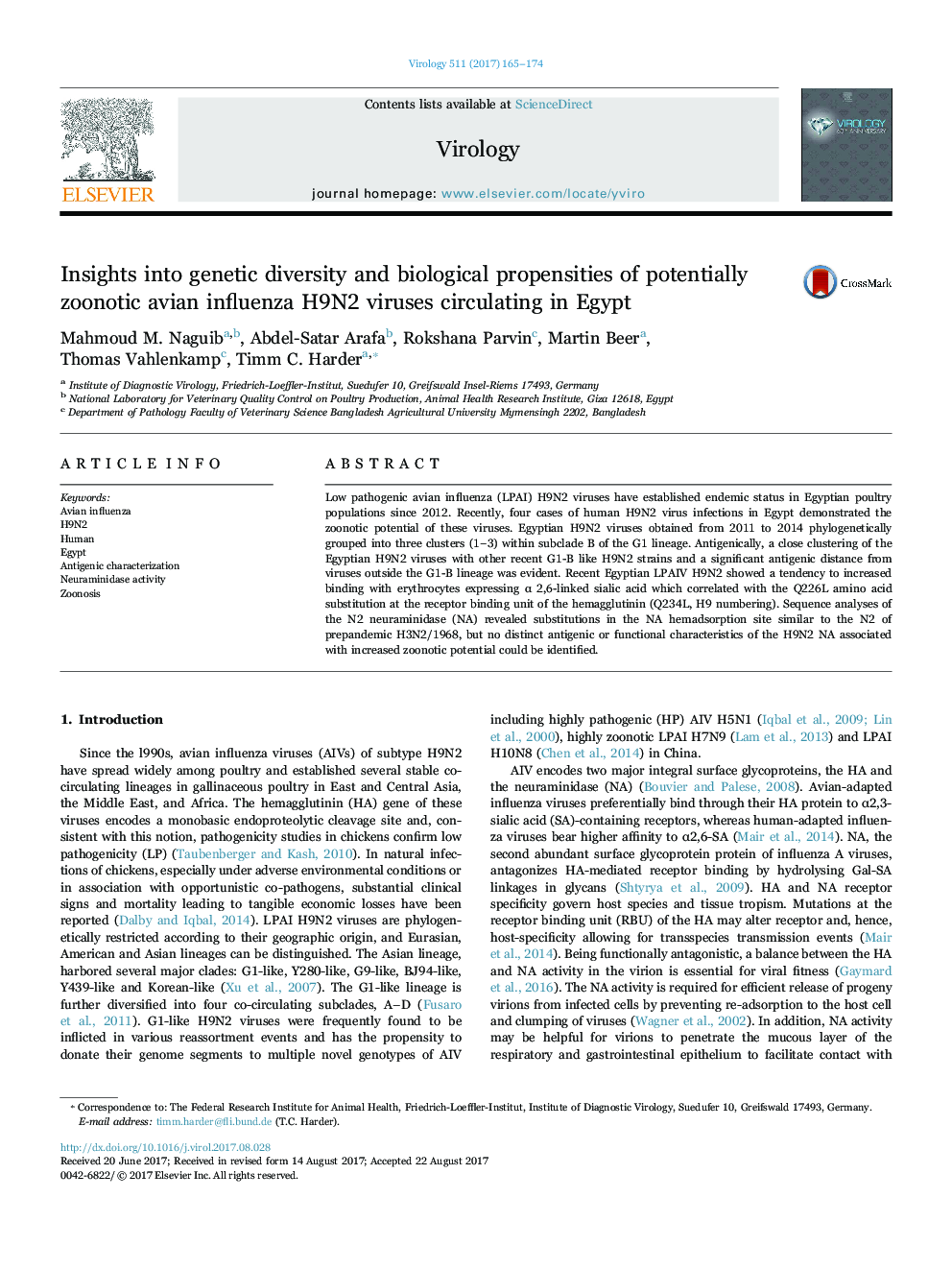| کد مقاله | کد نشریه | سال انتشار | مقاله انگلیسی | نسخه تمام متن |
|---|---|---|---|---|
| 5674899 | 1594206 | 2017 | 10 صفحه PDF | دانلود رایگان |
عنوان انگلیسی مقاله ISI
Insights into genetic diversity and biological propensities of potentially zoonotic avian influenza H9N2 viruses circulating in Egypt
دانلود مقاله + سفارش ترجمه
دانلود مقاله ISI انگلیسی
رایگان برای ایرانیان
کلمات کلیدی
موضوعات مرتبط
علوم زیستی و بیوفناوری
ایمنی شناسی و میکروب شناسی
ویروس شناسی
پیش نمایش صفحه اول مقاله

چکیده انگلیسی
Low pathogenic avian influenza (LPAI) H9N2 viruses have established endemic status in Egyptian poultry populations since 2012. Recently, four cases of human H9N2 virus infections in Egypt demonstrated the zoonotic potential of these viruses. Egyptian H9N2 viruses obtained from 2011 to 2014 phylogenetically grouped into three clusters (1â3) within subclade B of the G1 lineage. Antigenically, a close clustering of the Egyptian H9N2 viruses with other recent G1-B like H9N2 strains and a significant antigenic distance from viruses outside the G1-B lineage was evident. Recent Egyptian LPAIV H9N2 showed a tendency to increased binding with erythrocytes expressing α 2,6-linked sialic acid which correlated with the Q226L amino acid substitution at the receptor binding unit of the hemagglutinin (Q234L, H9 numbering). Sequence analyses of the N2 neuraminidase (NA) revealed substitutions in the NA hemadsorption site similar to the N2 of prepandemic H3N2/1968, but no distinct antigenic or functional characteristics of the H9N2 NA associated with increased zoonotic potential could be identified.
ناشر
Database: Elsevier - ScienceDirect (ساینس دایرکت)
Journal: Virology - Volume 511, November 2017, Pages 165-174
Journal: Virology - Volume 511, November 2017, Pages 165-174
نویسندگان
Mahmoud M. Naguib, Abdel-Satar Arafa, Rokshana Parvin, Martin Beer, Thomas Vahlenkamp, Timm C. Harder,